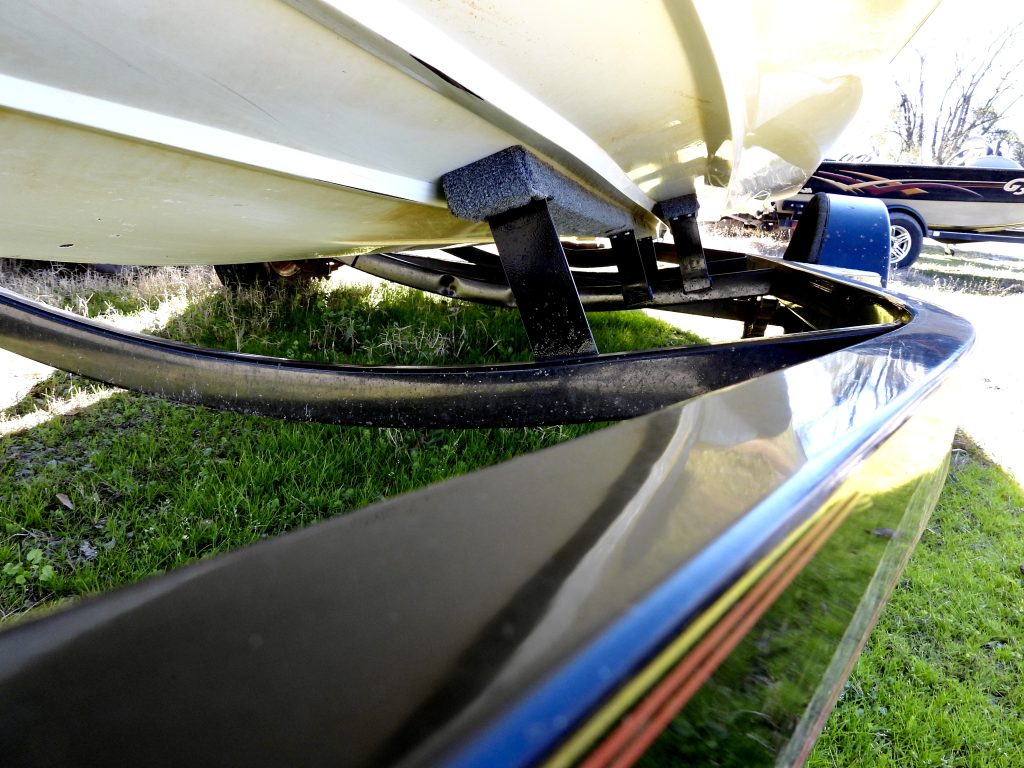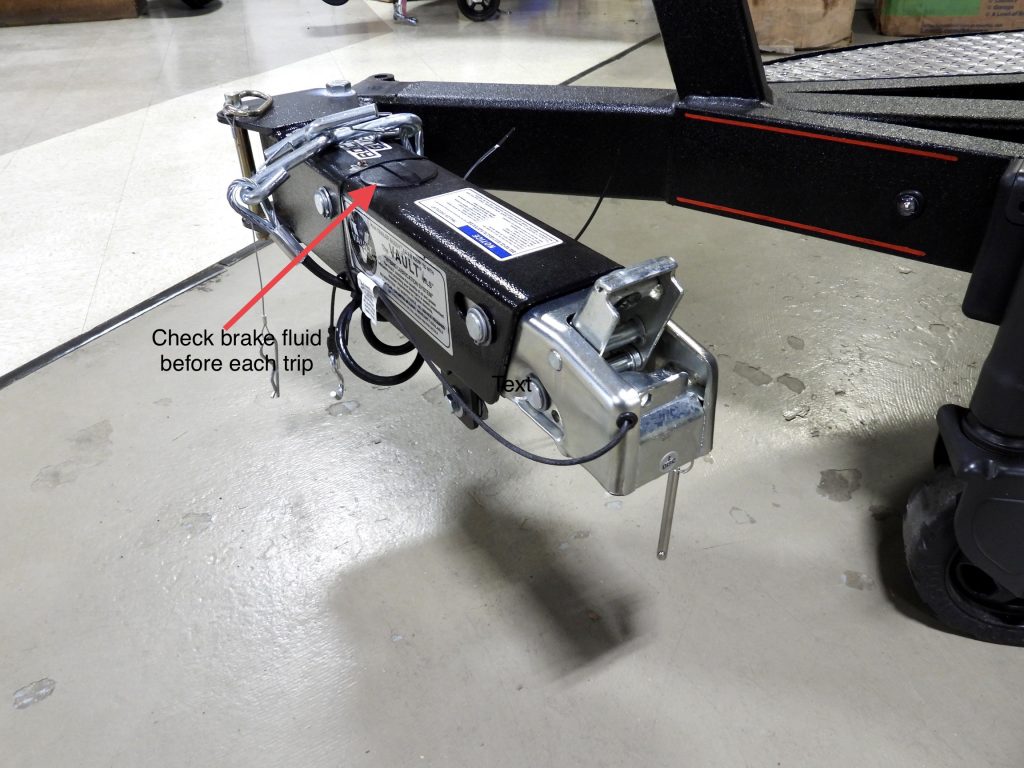Have you ever seen a perfectly good boat sitting on a broken-down trailer on the side of the road? Have you been in that unfortunate position yourself? This article will address some of the more common trailer issues and how you can prevent most breakdowns with a bit of preemptive maintenance. I will also highlight a newer approach to finding someone in your area to help with upkeep or boat trailer repair.
It’s not uncommon for a boat to get more attention than the trailer it sits on. Sometimes, it’s when a tire suddenly goes flat, or the rearview mirror reflects smoke billowing from a wheel that owners realize they should have spent a little more time inspecting their trailer.
Trailers in good condition allow for the easy transport, launch, retrieval, and storage of a boat. Conversely, neglecting to maintain your trailer can leave you stuck on the side of the road, or worse yet, involved in an accident caused by a blown tire or broken axle.
Parts Of A Trailer
Getting to know the various parts of your trailer will help you spot that roller, bracket, or runner that might need a little extra TLC and or even when it’s time for some professional boat trailer repair. After unloading your boat and parking your trailer, make it a habit to do a walk around to look for anything out of kilter.
- Trailer Frames
All trailers consist of a frame, one or more axles, suspension, bearings, wheels, and tires. Frames that get submerged in salt or brackish water are far more likely to have rust and brake issues than those used in freshwater, so choosing the best frame material and brakes for your boat is essential.
Aluminum and galvanized-steel trailers are better at resisting corrosion than painted steel. Aluminum costs more but usually outlast galvanized in saltwater use. One precaution that can help reduce the corrosive effects of residual salt is to give your trailer a thorough freshwater rinse after saltwater use.

Brackets are welded or bolted to the frame to position the rollers and carpeted runners to fit a specific boat. They allow the hull to easily roll and slide while loading and unloading: without causing any damage to the boat’s hull in the process.
Larger boats use heavier-duty trailers with more runners and rollers to distribute the additional weight evenly. Also, larger trailers often have dual or triple axles with mechanical or hydraulic brakes. Unfortunately, this also means those larger trailers have more parts to inspect and maintain, and it follows that more can potentially go wrong.
After the boat launch, a quick visual is usually good enough, but a thorough annual inspection is vital.
- Safety Chains/Cables
Check for rust and closely inspect the chain links or cables for bends, cracks, and deformities. Chains and cables hook onto the tow vehicle in various ways; ensure your fastening mechanism is in good working order.
- Winch
The winch sits atop a stand that’s bolted or welded onto the tongue of the frame. Check periodically for any strap or rope damage; also lubricate the gears, and ensure the hook is in good working order.
- Axles
Axles are tough, but a pothole, curb, or road hazard can cause frame damage or misaligned wheels. Also, rust is an issue when launching in saltwater. A freshwater rinse can help keep most rust issues at bay.
Give the suspension and its mounting bolts a thorough once over each year. Also, an alignment check might be prudent if you notice abnormal tire wear.
- Tires and Bearings
Wheel bearings and tire-related issues account for about 65% of all trailer-related breakdowns, so carrying a tire pressure gauge and ensuring the bearings are greased/oiled can help prevent the most common issues.
Dry rot on trailer tires results from prolonged storage (lack of use), excessive heat and sun exposure, or low inflation. Often, a combination of these factors results in premature sidewall and tread failure. Use black tire covers if stored outdoors.
When you stop at the water’s edge to undo your straps and winch, reach down and feel your axle hubs and tires. They might feel a little warm, but if one tire is hotter than the rest, check the tire pressure before you head back home with your boat. Also, if one hub seems too hot, jack the wheel up, wiggle it side to side and spin it to make sure the bearings are ok. Replacing or “repacking” bearings in a parking lot is much more convenient than on the side of a busy highway.
Bearings use grease or an oil bath system for lubrication. Sight windows allow for visually checking the oil level in each hub. Many oil covers are plastic and can suffer damage and oil loss. Carrying a spare cap and oil is cheap insurance.
Check tire pressure before each road trip and grease/oil bearings once a year. Also, if you know your trailer will be stationary for an extended length of time, jack the tires off the ground to avoid flat-spotting; and don’t neglect your spare.
- Brakes
Smaller boat/trailer single axle combinations rarely have braking systems installed. However, Alabama law requires a boat trailer to have an independent braking system if the Gross Towing Weight (GTW) is over 3,000 pounds or if the trailer’s weight exceeds 40% of the tow vehicle weight.
Trailers can have either drum or disc brakes. Drum brakes require precise and periodic adjustments to operate efficiently, but most newer trailers come equipped with disc types, and they can be the surge-type or electrically operated. A thorough freshwater rinse is a necessary precaution after using in salt or brackish water.

Check brake fluid levels before each trip and adjust drum brakes annually or every 2-3,000 miles. Also, lubricate caliper pins and check pad wear during your annual bearing inspection. Most mechanics also recommend changing the brake fluid every two years.
- Wiring/Lights
Occasion dabs of dielectric grease on each connector and bulb bases can prevent corrosion issues at these connections. Before each trip, make it a habit to test running lights, signals, and brake lights.
Inspect wiring annually, especially where it runs through the frame for missing insulation or cracks.
Finding Trusted Local Repair Technicians
Asking fellow boaters is another way to find a qualified boat trailer repair shop, but having more than one referral can be helpful when making your final decision as to whom you will do business with. Reviews are also valuable insight into the reliability of a service or product and have become an essential tool to help boaters evaluate a business. Unless you have established a good relationship with a local service technician, you will probably search the internet for “boat trailer repairs near me” looking for a reputable company that can help with any maintenance or repairs for your trailer. In the boating world, there are many local service providers who do great work but are “Mom and Pop” type businesses that do not have marketing budgets big enough to be found when people are searching for them. If you are searching, there’s another option for boaters looking for boat trailer service or anything to do with boats. Boat Planet is a search engine specific to the boating community that lists marine service providers specific to your location, along with reviews to help you find the trusted providers you are looking for. Warm weather is right around the corner, so get your boat and trailer ready for that sunny weekend that’ll be here before you know it.




